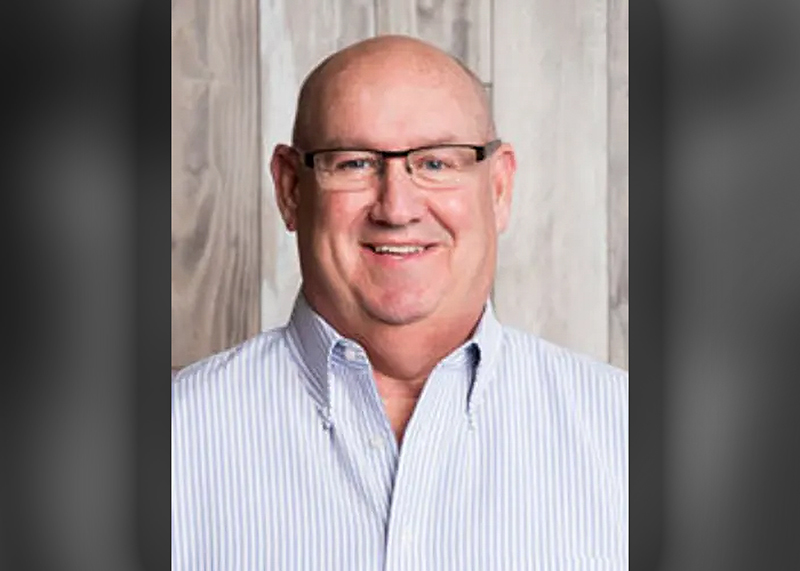Former Log Cabin Republicans President argues that Mike Pence is not anti-gay
GLAAD spokesman and native Hoosier Drew Anderson accuses Angelo of "cherry-picking" facts to fit his narrative

The former head of the Log Cabin Republicans recently came to the defense of Mike Pence in an opinion column for Fox News, arguing that the Vice President has been falsely accused by LGBTQ and left-wing activists of being anti-gay.
Gregory T. Angelo, who led the LGBTQ Republican group from 2013 to 2018, argues that Pence has received a raw deal when it comes to news coverage surrounding his views on LGBTQ issues, which have cast the vice president as some kind of anti-gay zealot who is so blinded by his religious beliefs that he is eager to promote anti-LGBTQ policies.
But, Angelo writes: “There is absolutely nothing — nothing at all — in Mike Pence’s record to indicate he sees himself as a culture warrior who believes LGBT Americans are the enemy.”
Focusing on comments made by lesbian actress Ellen Page during an appearance on The Late Show with Stephen Colbert, Angelo asserts that the vice president has been maligned in the media for his beliefs.
In the interview with Colbert, Page alleged that: Pence is opposed to gay marriage and attempted to ban it in Indiana; Pence believes in, or at least supports conversion therapy; and Pence “hurt LGBTQ people” when he was governor, an apparent allusion to his support for Indiana’s Religious Freedom Restoration Act, which he signed into law in 2015.
But Angelo argues that all of Page’s assertions are false.
“At the root of the vice president’s erroneous mislabeling as an anti-gay extremist is Pence’s admittedly poor handling of the passage of Indiana’s version of the Religious Freedom Restoration Act…” Angelo writes. “The legislation asserted that government ‘may not substantially burden a person’s exercise of religion’ — a rather specific law with narrow applications.
“Although similar legislation was passed at the federal level in 1993 after it was approved 97-3 in the U.S. Senate and signed by Democratic President Bill Clinton, liberals pounced with declarations that the Religious Freedom Restoration Act would open a door to rampant discrimination,” he continues. “Opponents of the law claimed it would allow any business in Indiana to refuse service to members of the LGBT community simply by citing ‘deeply held beliefs.’ Of course, that wasn’t the case, but the false narrative spread across the nation, sparking outrage.”

Rather, Angelo says, Pence argued that the law wasn’t intended to discriminate against LGBTQ people, and eventually signed a bill clarifying that the law should not be interpreted as permitting anti-LGBTQ discrimination.
“Pence then became the first governor in Indiana history to sign protections into law based on ‘sexual orientation’ and ‘gender identity’ — hardly the actions of an anti-LGBT crusader,” writes Angelo.
As for Pence’s purported support for conversion therapy, Angelo says such charges have been exaggerated, and are based on flimsy evidence — using a misstatement by Pulse nightclub shooting survivor Brandon Wolf in which Wolf claimed Pence wanted to round up gay people and put them in “concentration camps” (he later said he had intended to say “conversion camps”) as one of the more extreme examples of how the vice president is being slandered.
In 2000, Pence’s congressional campaign website states that he supported reauthorizing Ryan White HIV/AIDS funding only if resources were “directed toward those institutions which provide assistance to those seeking to change their sexual behavior.”
But Angelo says people have made a huge assumption from a rather benign statement issued almost two decades ago.
“Changing one’s ‘sexual behavior’ is far different than changing one’s ‘sexual orientation,'” Angelo writes. “In fact, at the time of Pence’s proclamation, LGBT advocates were working to promote safer sexual behaviors themselves with condom distribution programs and public education campaigns about HIV transmission.”
Angelo also points to Pence’s enthusiastic reaction to President Trump’s call to eliminate the HIV/AIDS epidemic in the United States by 2030, and his support of openly gay Ambassador to Germany Richard Grenell, as further evidence that the vice president is being unfairly maligned.
“Despite the continued wails of liberals intent on keeping the lie alive about his supposed homophobia, Mike Pence has acted with grace, a spirit of inclusion, and a commitment to be a vice president for all Americans,” Angelo concludes.
But Drew Anderson, a spokesman for GLAAD and a native Hoosier who previously worked for the Indiana Democratic Party, says that Angelo’s praise of Pence’s record is nothing but spin.
“The one thing you need to know about Mike Pence is his ideology will trump common sense, and any sort of PR crisis, any time,” Anderson says. “It appears that Angelo is cherry-picking what he wants people to see.”
Specifically, Anderson points to Pence’s refusal to allow clean needle exchanges — a stance he later reversed, but which exacerbated the HIV epidemic among intravenous drug users in rural Indiana — as a time when ideology trumped public health concerns.
But Anderson also cites the same statement from Pence’s 2000 campaign website — which Angelo used to defend the vice president from charges he is anti-gay — as evidence of his rigid ideology, as Pence was not in favor of renewing Ryan White HIV/AIDS funding unless money was also spent on efforts to curb certain sexual behaviors.
While Anderson concedes that “sexual behavior” and “sexual orientation” are not synonymous, he argues that many on the right end of the political spectrum have failed to make such a distinction over the years.
Therefore, based on historical context, at the time when the statement was issued, therapy to curbing or change “sexual behavior” was often interpreted as changing “sexual orientation.”

Anderson notes that Pence’s record in Congress is available for anyone to access. As a member of the U.S. House of Representatives, Pence voted against the Employment Non-Discrimination Act, voted against the repeal of “Don’t Ask, Don’t Tell,” and co-sponsored a constitutional amendment to ban same-sex marriages.
“I’m a little baffled how [Angelo] comes up with this idea that Mike Pence is not anti-LGBTQ,” he says. “And that’s just in Congress. We’re not even talking about the fact that Mike Pence supported RFRA. We’re not talking about HJR 3, an amendment in 2014 that would have added a ban on marriage equality into Indiana’s constitution. Mike Pence not only supported it, he went to events that promoted that amendment.”
With regard to Angelo’s argument that Indiana’s RFRA law was narrowly tailored, Anderson contends that it was overly broad, and went far beyond the scope of the 1993 federal RFRA, which was intended to protect religious minorities.
He points to the controversy over Memories Pizza, the since-shuttered pizza shop in Walkerton, Ind., whose owners claimed that the RFRA law permitted them to refuse service to same-sex couples, as an example of how the law was much more aggressive in what it interprets as “religious freedom” than the federal law.
“The argument that Gregory tries to make, comparing Indiana’s RFRA to the one signed by Bill Clinton, is so out-of-touch and outdated, that I wish he had done more digging to find the truth,” Anderson says.
Additionally, he notes, while Pence and Republicans in the legislature eventually passed a “fix” to the RFRA law to clarify that it shouldn’t be used to discriminate against LGBTQ people, the language in the bill is not binding.
To this day, there is no law in Indiana that explicitly prohibits anti-LGBTQ discrimination in employment, housing, or public accommodations.
“The only reason the clause was added to the ‘fix’ was to stop the PR crisis that Mike Pence and Republicans were having in that state,” says Anderson. “It’s a clause that cannot be backed up in court because the state’s [civil rights law] does not include sexual orientation or gender identity.”
Angelo did not immediately respond to a voicemail seeking a response to Anderson’s assertions.
Support Metro Weekly’s Journalism
These are challenging times for news organizations. And yet it’s crucial we stay active and provide vital resources and information to both our local readers and the world. So won’t you please take a moment and consider supporting Metro Weekly with a membership? For as little as $5 a month, you can help ensure Metro Weekly magazine and MetroWeekly.com remain free, viable resources as we provide the best, most diverse, culturally-resonant LGBTQ coverage in both the D.C. region and around the world. Memberships come with exclusive perks and discounts, your own personal digital delivery of each week’s magazine (and an archive), access to our Member's Lounge when it launches this fall, and exclusive members-only items like Metro Weekly Membership Mugs and Tote Bags! Check out all our membership levels here and please join us today!
























You must be logged in to post a comment.